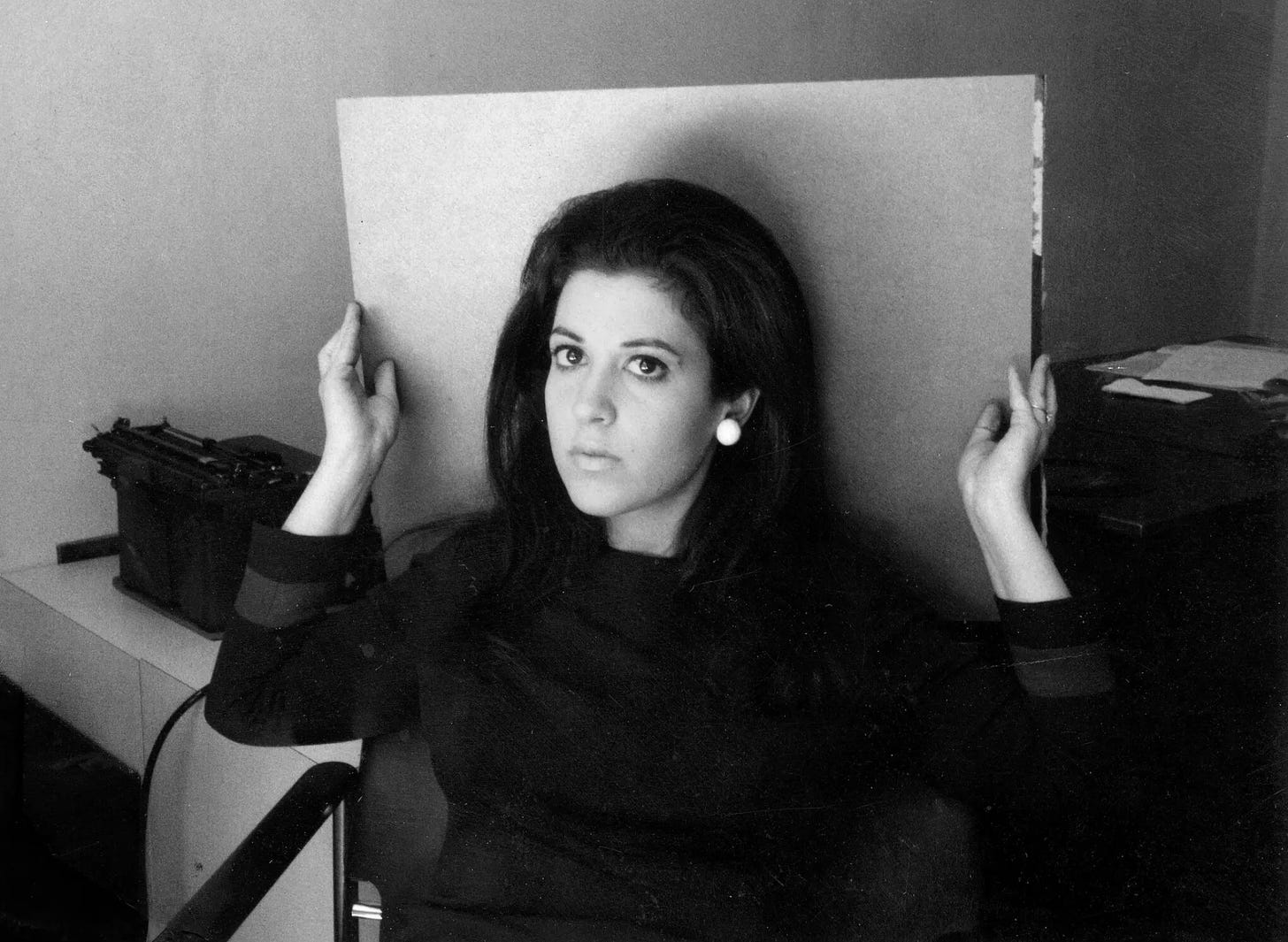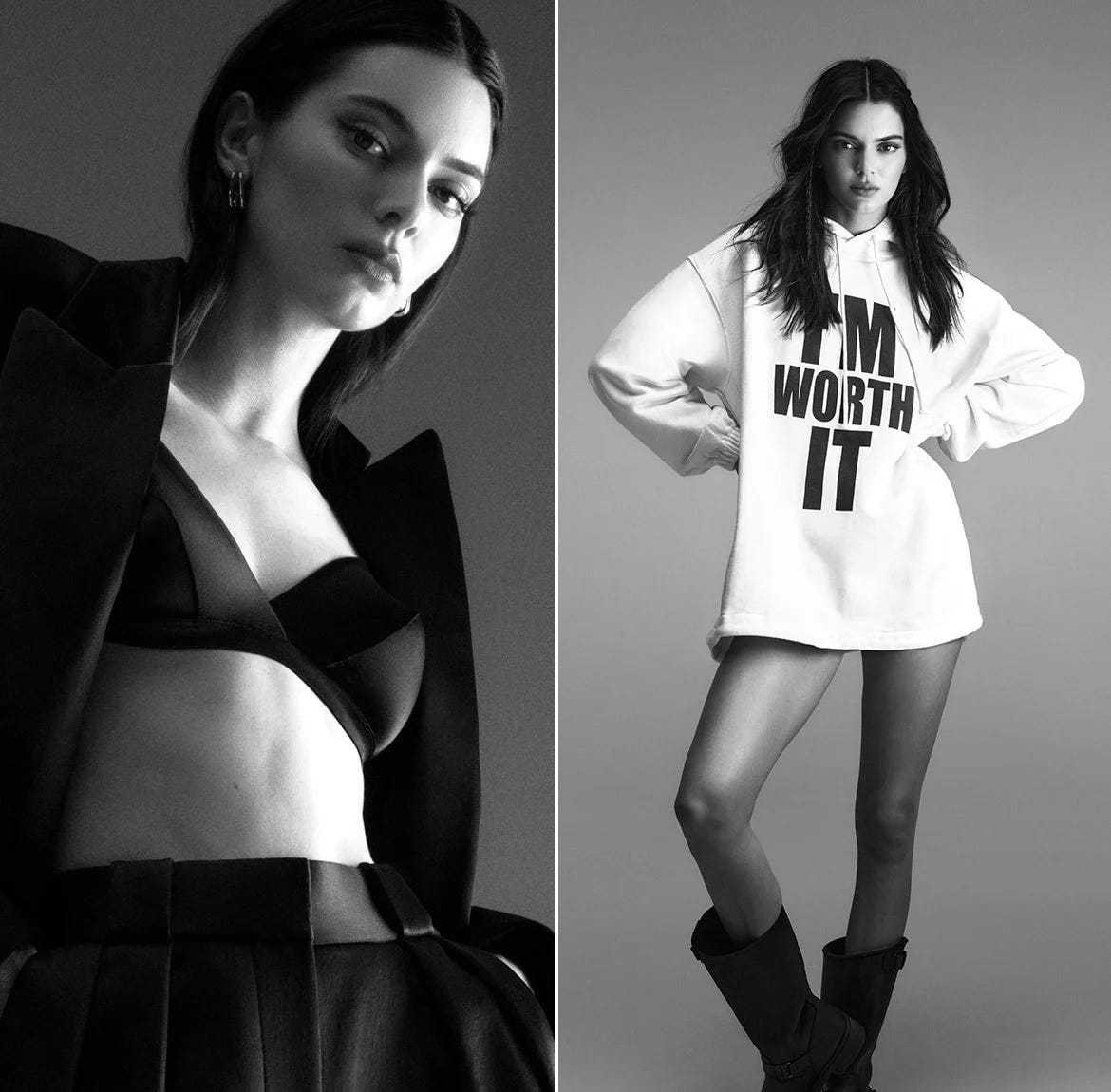I just got back from a writing residency in the Adirondacks. For two weeks I lived on the side of a mountain in a tiny, pine cabin that was my writing space, bedroom, yoga studio, closet, and living room. The kitchen had a roof, but it didn’t have walls. On my second day, during a freezing rainstorm, a rolling cart got knocked over by a strong gust of wind and smashed a bunch of glass and pans into the dirt. After that, I understood why it was called Hurricane Mountain.
(ABOVE: My little house on Hurricane Mountain.)
I was warned the internet and phone could be spotty there, so I figured I’d better bring something to watch that didn’t rely on streaming. I decided to download season one of Mad Men — the iconic series about the advertising business in the 1960s — to rewatch. I figured it’d be a good way to pass the time while still focusing on my work, since I’m thinking a lot these days about my life spent in and around advertising. I hoped the show would jog some old memories. Also, it’s always been my dream to travel with Jon Hamm.
I haven’t watched Mad Men since the first time it aired, back in the mid 2000s when I was a new-ish copywriter at Wieden+Kennedy. I remember every Monday, rolling into work and talking with the other women I worked with about the episode from the night before. To us, the show didn’t seem like an imaginary tale from ye golden age of advertising, but instead, a live-action documentary, shot in real-time. The dynamics between the men and women in the office were eerily familiar — like that one time I watched a bunch of dudes stand around another guy’s computer and ogle bikini photos of a woman who’d just come through the office for a job interview. Or that other time, when I was assigned to write an ad about the MLB and the guy running the account turned red with anger and said to everyone in the room, “What could she possibly know about baseball?” I’m not sure what his problem was exactly, but at the time, it seemed like it had a something to do with how I hyperventilated when I took the stairs .
In these situations, and in the others that bubbled up for me while watching Mad Men in the woods, it was made clear to me over and over that my weird, oversized body wasn’t worth much, but my words – the words I wrote voiced by celebrities and models to sell stuff? Those were worth a lot. Sort of like Peggy with her genius “Basket of Kisses” insight for Belle Jolie lipstick. The idea was hers, but once she cracked it, she wasn’t needed anymore.
Before I get much further with my logic, I have to come clean. Back in my early ad days, I didn’t feel worthy pretty much anywhere, not just at work. I was making time with terrible men who didn’t deserve me, shoveling food into my face like my mouth wasn’t attached to my body and talking shit about myself – TO MYSELF – on a loop.
Now, as I try to assemble the timeline of my life informed by advertising, I often find myself wondering how much of my story is about the impact of advertising (the messages that raised me and my career) itself, and how much of it is just about …me? I haven’t come up with an answer yet, but that question sounds like something I’d ask. I always want to empathize with whatever is making me feel terrible. That’s one of the reasons I was great at advertising. I can locate humanity in everything; in things that don’t deserve it and in things that aren’t even human. Just like Ilon Specht could do too.
On my second full day on Hurricane Mountain, I heard the name Ilon Specht for the first time, even though she’s been a part of my life since I was born. Her obituary was served up on my New York Times app I could almost get to load when the wind was blowing right. I saw the pixels build slowly in front of me: ILON SPECHT, WHO EMPOWERED WOMEN WITH ‘I’M WORTH IT’ AD, DIES AT 81.
(ABOVE: Ilon Specht looking incredible in every way.)
These past few years, I’ve thought a lot about the taglines that have informed my history; the messages I’ve internalized that made me calculate my worth as a person – but more specifically, a woman. BECAUSE I’M WORTH IT is one I return to often. Ilon Specht wrote it the year I was born (and the year Roe vs Wade was decided), in 1973 for L’Oréal. For decades, it’s been voiced in ads by women like Cybil Shepherd, Kate Winslet, Gwen Stefani and even Beyonce (!), but never by Ilon.
I get it. All the ads I spent my life making don’t have my name or voice attached to them either. That’s the deal you make when you work in advertising; you’re paid to be invisible. Like Don tells Peggy in Mad Men, “That’s what the money is for.”
My resonance with Ilon’s impact reaches well beyond what our ad careers seem to have in common. BECAUSE I’M WORTH IT and I go all the way back to Eckerd’s Drugs when I was sixteen in Indialantic, Florida and smitten with the sparkly, iridescent boxes of L’Oréal hair dye. In those days, I was a proud goth and wanted to make my mousy brown hair as black as I felt on the inside. I distinctly remember staring at the shelves and needing to choose between the L’Oréal box and the other, cheaper-looking mom brands (including one from the-lady-that-orgasmed-in-the-shower-when-she-used-it). Honestly, there was no contest. I knew I needed to spend a few extra bucks of my Winn Dixie paycheck to treat myself to the level of worth I’d been promised by L’Oréal.
Because I’m Worth It convinced me that the more money I spent, the more confident I’d be and then, maybe, some cute boy would finally ask me to go to a poetry reading with him. Like most brand propositions, BECAUSE I’M WORTH IT wasn’t saying anything about the product itself, but rather it was talking about the promise of how you’d feel once you bought it. L’Oréal is still peddling this promise today:
“When we say “because you’re worth it, it’s not a tagline, it’s a brand mission. Taking beauty into your own hands is empowering. Believing in your own beauty is something no one else can control, that is the real power. Our mission will only be accomplished when we no longer need to remind women of their worth.”
– Delphine Viiguier-Hovasse, Global brand President of L’Oréal Paris.
As much as I can sort of see what Delphine’s saying, I tend to believe all the “reminding” L’Oréal’s doing with their million dollar advertising budgets isn’t helping women get any closer to a feeling of worth. I can’t say my experience of seeing the new L’Oréal ads featuring their latest brand ambassador, Kendall Jenner, leaves me feeling more confident. In these promotional photos for their partnership, Kendall’s legs are taller than I am, and her sweatshirt would be tight on me.
(ABOVE: What “Worth It” looks like in 2024.)
Even though Delphine doesn’t say this outright, L’Oréal has a vested interest, revenue-wise, to ensure women continue to live on rocky ground in the worth department because it’s their product that ultimately allows women to take “beauty into our own hands.” No product, no worth. Like Delphine, I’d also love to live to see a time where women no longer have to be reminded of their value by a multi-national beauty brand (that’s 22% owned by Nestle LOL). A universal sense of “worth” for all women sounds like utopia. I’m pretty sure it’s not hair dye and makeup that’s going to get us there, though.
There’s one other thing about Ilon’s obituary that left me reeling, and that’s the story about how her tagline, BECAUSE I’M WORTH IT, was written as a direct “fuck you” to the men in her agency who’d underestimated her ability as a copywriter. In an interview for The New Yorker with Malcom Gladwell in 1999, Ilon explained:
“We were sitting in this big office and everyone was discussing what the ad should be. They wanted to do something with a woman sitting by a window and the wind blowing through the curtains. You know, one of those fake places with big glamorous curtains. The woman was a complete object. I don’t even think she spoke. They just didn’t get it. I was a twenty-three-year-old girl – a woman, what would my state of mind have been? I could just see that they had this traditional view of women, and my feeling was that I’m not writing an ad about looking good for men, which is what it seems to me that they were doing. I just thought, fuck you. I sat down and did it, in five minutes. It was very personal. I can recite to you the whole commercial, because I was so angry when I wrote it.”
When I read that, I almost fell over. I also have a story like this (maybe a lot of ad women do?). Back in those days when I was watching for the Mad Men first time, I wrote an ad for Air Jordan that exploded out of me when I felt underestimated by the usual suspects on the account who couldn’t seem to figure out what I was doing in a brief for this project. Fortunately for me, the ad didn’t need to be about how basketball works — it needed to be about the fire that comes from being doubted.
I channeled my frustration into a thinly veiled message for the people at work who’d written me off, while crafting a spot that would get millions of people to think their shoes were magic and that buying them would get them closer to their dreams. Now, when you search the internet for “Famous Michael Jordan Quotes,” a thing I scrawled while seething in the middle of the night while eating leftover Chinese food is attributed to the most famous basketball player of all time.
Of course, this Jordan ad doesn’t have the same reach and staying power as BECAUSE I’M WORTH IT, but in its own way, it lives on — and honestly, I’m conflicted about it. I love how something I wrote gives people confidence and a sense of power, but I’m bummed this feeling I manufactured is tied to some company’s stock value. Still, it’s neat the audio’s currently being used in TikTok inspirational workout videos (hey bro! I wrote that sound you’re working out to!) and the original posting of the spot is still visited by people who drop comments about how they still watch the ad before big moments in their lives. Sixteen years after the Jordan ad was posted on YouTube, this guy commented: “2022 and I still come back. The last line, I have patience. I will become what I know I am has seriously carried me through seasons of life.” Same, @calebcarr7808. Same.
I was thrilled to learn there’s a documentary in the works about Ilon. The trailer gave me goosebumps.
What a fucking badass. I can’t wait to get to know her more; to hear her story in her own voice. In the meantime, I’ve just been trying to piece together as much as I can about this strong, bawdy, take-no-shit Jewish lady who’s influenced my beliefs about beauty and worth my entire life. I know a woman can only live in the time she is born, and so for Ilon, unleashing her power through an ad campaign, and offering power to women to own, was a gift – even if there is no product in the world that can be purchased to make someone worthy. Not a hair dye. Not a pair of sneakers. I get it, though. I also used to believe advertising could be a vehicle for empowerment, but now I know there’s no product in the world that’s capable of filling a human-sized hole in your heart. Still, it’s clear to me that although L’Oréal still uses Because I’m Worth It to sell beauty products, Ilon’s intention was bigger than bleach. As she says in the upcoming documentary (as quoted in The New York Times obituary):
“It’s about humans, it’s not about advertising. It’s about caring for people. Because we’re all worth it or no one’s worth it.”
In conclusion, I love you, Ilon Specht.
It was an honorable thing you did, offering women a rallying cry that could leave them feeling empowered in a time of profound disempowerment. I just wish your tagline had become unnecessary after fifty years of use. Instead, it’s more needed than ever. Just like in Mad Men days, women still have to fight every day to prove their worth. It’s a bummer they’re still being promised it’s hair dye and make-up that can make this happen. Oh, how I wish what you told millions of women was true, that a woman’s worth is something she can buy in a bottle, right off the shelf.
THIS NEWSLETTER HAS BEEN SPONSORED BY: “WORTH”
Thanks for reading Don’t Buy What I’m Selling. I hope you found the time spent here — worth it. (SEE WHAT I DID THERE!?). Just to say, this first one was a bit longer than I’d planned, so if you got this far, I appreciate you reading. In the future, I hope to balance out longer stuff with quicker takes. Lord knows our attention spans are exhausted. Mine included.
If you’d like to leave your thoughts about anything I said here, I’d love to read them. I’m particularly wondering:
Did Ilon’s iconic tagline ever make you feel any sort of way? Good, bad, indifferent?
What’s your first memory of Because I’m Worth It?
Do you agree with my thoughts on power and worth, and how these things can’t be bought, or do you think I’ve gotten it all wrong? If so, PLEASE TELL ME WHAT YOU BOUGHT THAT MADE YOU FEEL THAT WAY SO I CAN PROMPTLY GO OUT AND BUY IT.
Also, my birthday is next month. Just saying.
Until next time.
You’re Worth It,
Lu








My god Lu Chekowsky I love your writing and your insight and your beauty and bravery. Keep enlightening us xx
Lu... do you know about Madonna Badger (ad agency owner) & the campaign #womennotobjects? It points a finger at the beauty industry & the damage it has to young women. & as inspiring as the initiative is, it's disheartening to see how slowly change happens. Keep sending your pearls out into the world. your writing always lifts me up. Length of piece... worth it. Content...worth it. Seeing your name in my inbox...worth it.